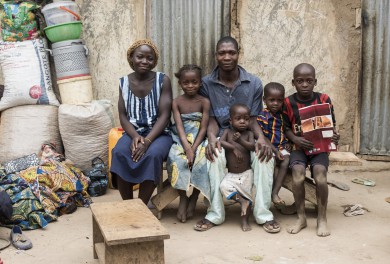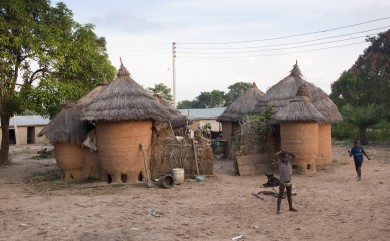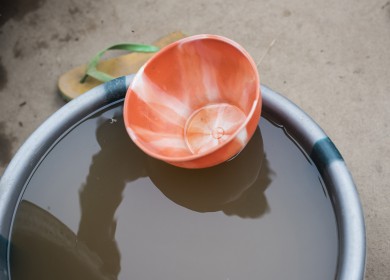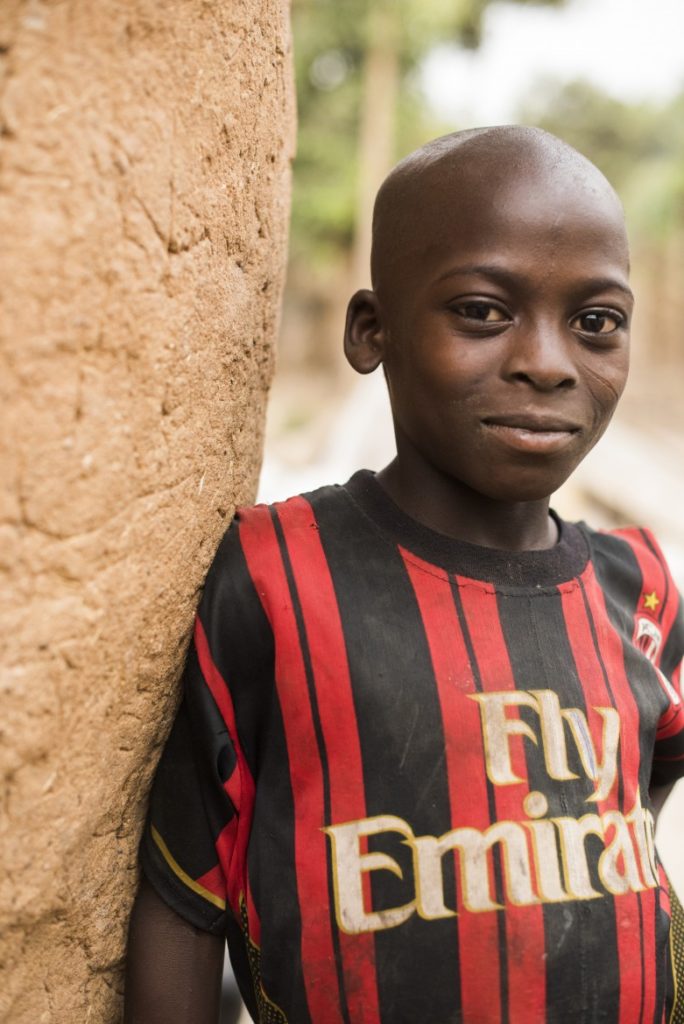
THE FIRST ONE IN THE FAMILY WHO CAN READ
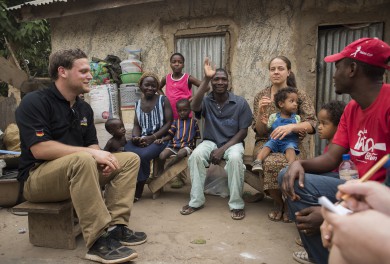
Together with a team of GAiN staff, Judith, the principal of the school, pays a visit to a family in Pasali. The village is located in the vicinity of the school.
The family’s small house is humble and its main purpose is to serve as a place for the family to sleep. In front of the house there are wooden posts, between which some ragged cloths and old bags are strung, building a fence around their small courtyard. This is where the few belongings of the family are scattered on the floor: some pots, cups, bowls with brownish water (destined for drinking). The guests are asked to sit down on a bench. They have brought some gifts for the family: milk powder, cocoa and soap. The guests from Germany ask the parents about the way they live, what they are mostly concerned about and why they send their children to the school of Hope Eden.
Unfavourable conditions
The parents are humble farmers who live off what they grow. Luka, the father, is the only one of twelve children who survived. He had to help his parents on the farm and did not get a chance to go to school. His wife, Sarah, has also never been to school. Her parents died when she was still young.
The young couple has six children and the three oldest attend Hope Eden Community School. Ikwo, the oldest son, was the first one in the family who could read. Luka hopes that Ikwo will be able to learn a profession. The chances are good because the school is known for its high standards.
Principal Judith makes sure that new teachers really understand their own subject and that they have a heart for teaching.
Education and food
Judith and her husband, Elijah, do everything they can to satisfy the hunger for education. However, sometimes they face situations that have to do with real hunger. Some weeks ago, Luka and his wife confided in them that they were expecting twins. They were very afraid because they did not know how to pay for the hospital and how to feed two more mouths. Elijah took the mother to several prenatal appointments at a good local hospital were the children were delivered through a C-section. The two boys were very small, but healthy. The doctor noticed that the mother was malnourished but still recommended her to breast feed the children – it is the only possibility to nourish infants in the village and also the most hygienic solution. Judith and Elijah devised a nutrition programme for the mother. And the baby equipment, which the GAiN Team had brought with them from Germany, was, of course, more than welcome.

Together with a team of GAiN staff, Judith, the principal of the school, pays a visit to a family in Pasali. The village is located in the vicinity of the school.
The family’s small house is humble and its main purpose is to serve as a place for the family to sleep. In front of the house there are wooden posts, between which some ragged cloths and old bags are strung, building a fence around their small courtyard. This is where the few belongings of the family are scattered on the floor: some pots, cups, bowls with brownish water (destined for drinking). The guests are asked to sit down on a bench. They have brought some gifts for the family: milk powder, cocoa and soap. The guests from Germany ask the parents about the way they live, what they are mostly concerned about and why they send their children to the school of Hope Eden.
Unfavourable conditions
The parents are humble farmers who live off what they grow. Luka, the father, is the only one of twelve children who survived. He had to help his parents on the farm and did not get a chance to go to school. His wife, Sarah, has also never been to school. Her parents died when she was still young.
The young couple has six children and the three oldest attend Hope Eden Community School. Ikwo, the oldest son, was the first one in the family who could read. Luka hopes that Ikwo will be able to learn a profession. The chances are good because the school is known for its high standards.
Principal Judith makes sure that new teachers really understand their own subject and that they have a heart for teaching.
Education and food
Judith and her husband, Elijah, do everything they can to satisfy the hunger for education. However, sometimes they face situations that have to do with real hunger. Some weeks ago, Luka and his wife confided in them that they were expecting twins. They were very afraid because they did not know how to pay for the hospital and how to feed two more mouths. Elijah took the mother to several prenatal appointments at a good local hospital were the children were delivered through a C-section. The two boys were very small, but healthy. The doctor noticed that the mother was malnourished but still recommended her to breast feed the children – it is the only possibility to nourish infants in the village and also the most hygienic solution. Judith and Elijah devised a nutrition programme for the mother. And the baby equipment, which the GAiN Team had brought with them from Germany, was, of course, more than welcome.
